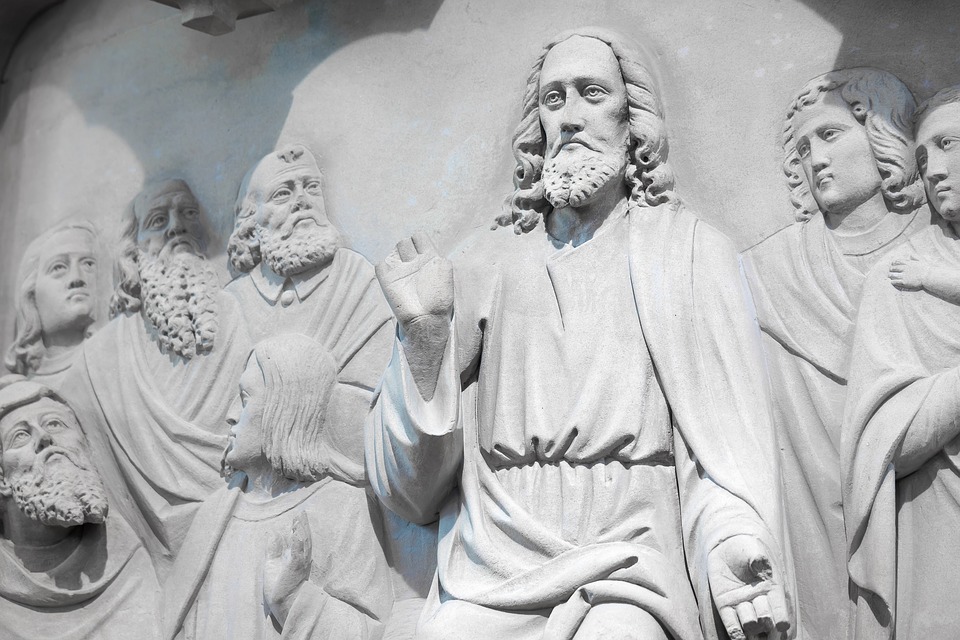When you read about Jesus and study his teachings, one thing becomes clear.
Jesus was mostly a macro-manager. He painted in broad brush strokes upon a wide canvas.
Accordingly, when his enemies set traps baited with legal minutiae, he easily stepped around them.
Which (of the 613) Jewish laws are most important?
Two. Love God and love your neighbor. And by the way, those two are related.
Who sinned, that caused this man to be born blind?
No one. His condition is an opportunity to show God’s love and power.
Do we pay taxes to Caesar or not?
Sure you do, whatever’s owed him. And at the same time, give to my Father what you owe him.
Your disciples are breaking the law about the Sabbath.
The Sabbath was made for people, not the other way around.
Moses said kill this adulterous woman. What do you say?
I say go ahead and do it if you’ve never sinned.
For good measure, his final teaching story in Matthew’s Gospel praised people who showed compassion but weren’t too sharp regarding theology and ethics. The Lord blesses them as “sheep,” in contrast to the goats who knew the laws but didn’t carry out the intent behind them.
Jesus was very clear that the Kingdom requirements were written in large font with few words.
- LOVE AND HONOR GOD.
- LOVE AND HONOR PEOPLE.
- FORGIVE.
- DON’T JUDGE.
- BE COMPASSIONATE.
- BE GENEROUS.
- BE HUMBLE.
- BE RIGHTEOUS.
Micro vs. Macro-Managing
Jesus was a macro-manager.
Trouble starts when religious people become micro-managers.
What should you eat? What should you wear? What creed must you believe? What about sexual relations?
My hunch is that when we start micro-managing in the name of Jesus, we end up breaking one of his macro teachings. Establishing a set of unquestionable rules and christening them Christian is a sure-fire way of lapsing into self-righteousness. I have no doubt that Jesus would have as many problems with Christian Pharisees as he had with the Jewish. The Jewish ones baptized their laws in Moses’ name. Christian ones do it in the name of a Jesus who may bear scant resemblance to the one who spoke in Matthew 5-7.
Absolutely you must establish a set of moral rules, of rights and wrongs. Christians must live a lifestyle that’s counter to worldly priorities. However, to obey them blindly, without reflecting on them in light of Jesus’ macro teachings, is an attempt to save ourselves. Our on-going task critiques past guidelines that may have spoken to another era and culture. Are they relevant now in light of what we know and experience? Do they honor Jesus’ broad kingdom ethics?
Doing that type of work will help us exceed the righteousness of the Pharisees (Matthew 5:20). It will also help us craft additional laws that are more in keeping with Jesus’ vision, so that grace may abound.
A Higher Standard
Christian morality can’t be decided by cobbling together some of the 31k verses scattered across biblical pages. Christian morality is decided by relentlessly discerning and honoring the non-negotiable standards Jesus set forth, in large font and with few words.
That enables those standards to be understood in relevant ways today.
Sin is still sin. It’s just that sin, when framed as transgressing Jesus’ macro laws, is now understood in ways that can lead to repentance. And grace. And a reconciled relationship with God and with fellow sinners.
Jesus is the way, the truth and the life.
If he related to us in macro terms, shouldn’t we relate to one another in those terms as well?

